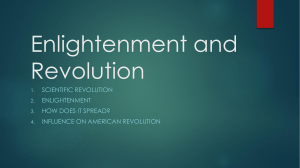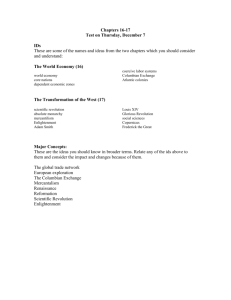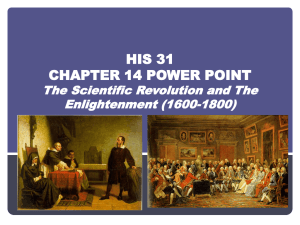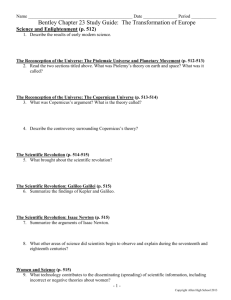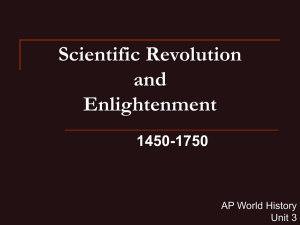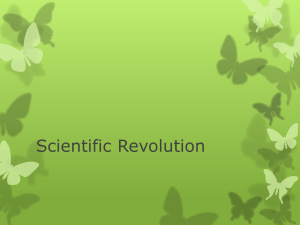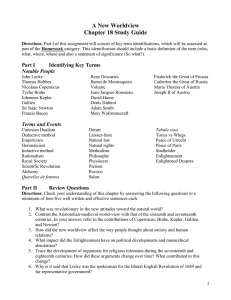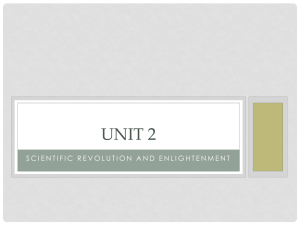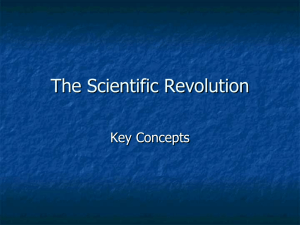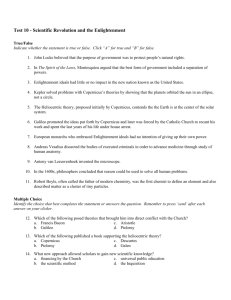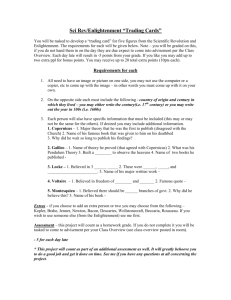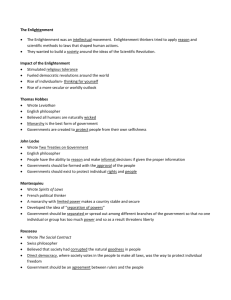THE SCIENTIFIC REVOLUTION
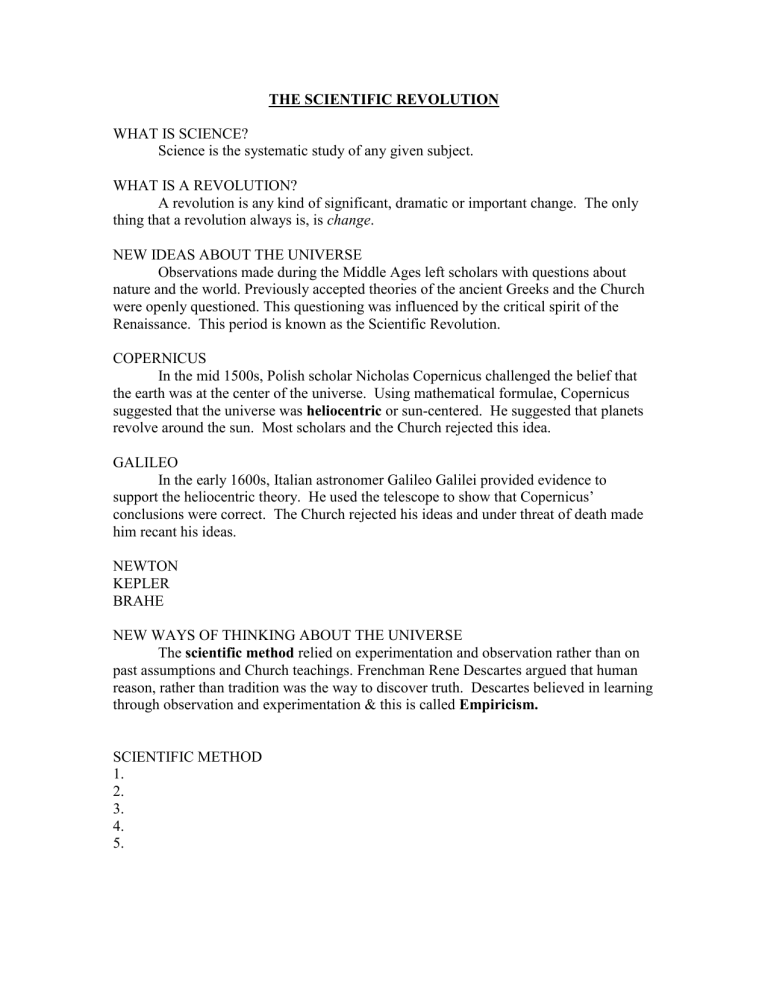
THE SCIENTIFIC REVOLUTION
WHAT IS SCIENCE?
Science is the systematic study of any given subject.
WHAT IS A REVOLUTION?
A revolution is any kind of significant, dramatic or important change. The only thing that a revolution always is, is change .
NEW IDEAS ABOUT THE UNIVERSE
Observations made during the Middle Ages left scholars with questions about nature and the world. Previously accepted theories of the ancient Greeks and the Church were openly questioned. This questioning was influenced by the critical spirit of the
Renaissance. This period is known as the Scientific Revolution.
COPERNICUS
In the mid 1500s, Polish scholar Nicholas Copernicus challenged the belief that the earth was at the center of the universe. Using mathematical formulae, Copernicus suggested that the universe was heliocentric or sun-centered. He suggested that planets revolve around the sun. Most scholars and the Church rejected this idea.
GALILEO
In the early 1600s, Italian astronomer Galileo Galilei provided evidence to support the heliocentric theory. He used the telescope to show that Copernicus’ conclusions were correct. The Church rejected his ideas and under threat of death made him recant his ideas.
NEWTON
KEPLER
BRAHE
NEW WAYS OF THINKING ABOUT THE UNIVERSE
The scientific method relied on experimentation and observation rather than on past assumptions and Church teachings. Frenchman Rene Descartes argued that human reason, rather than tradition was the way to discover truth. Descartes believed in learning
3.
4.
5. through observation and experimentation & this is called Empiricism.
SCIENTIFIC METHOD
1.
2.
THE ENLIGHTENMENT
WHO HAD THE AUTHORITY IN THE DARK AGES?
1.
2.
Both received their authority from…? Similar to what other concept from 9 th grade?
SCIENCE & THE ENLIGHTENMENT
During the Scientific Revolution, scientists used reason to explain why things happened in the physical universe. This success inspired great confidence in the power of reason. By the early 1700s, writers sought to reason to discover natural laws , or laws that govern human behavior. By applying the scientific method of investigation & observation, scientists thought they could solve the problems of society.
This way of thinking led to the Enlightenment . This was the period in the 1700s, in which people rejected traditional ideas & supported a belief in human reason. The belief that logical thought can lead to truth is called rationalism . The Enlightenment introduced new ways of viewing authority, power, government & the law.
TWO VIEWS ON GOVERNMENT
HOBBES
All men are basically wicked and need strong government to keep the order.
Society long ago entered into a social contract with the king to exchange their rights and freedom for order and stability. Hobbes argued that to be without strong government or to be without government puts man in a state of nature, where there aren’t any rules and there is chaos.
LOCKE
Believed all people possess 3 natural rights . These are life, liberty & property.
According to Locke, governments are formed with the consent of the people and formed to protect the rights of the people. If a government fails to do this, people have the right to overthrow the government.
MONTESQUIEU
Wrote that the powers of government should be separated into 3 branches: legislative, executive & judicial.
VOLTAIRE
ROUSSEAU
ENLIGHTENED DESPOTS
Some monarchs accepted Enlightenment ideals. They were known as enlightened despots , absolute rulers who used their power to reform society.
MARIA THERESA
CATHERINE THE GREAT
JOSEPH II
